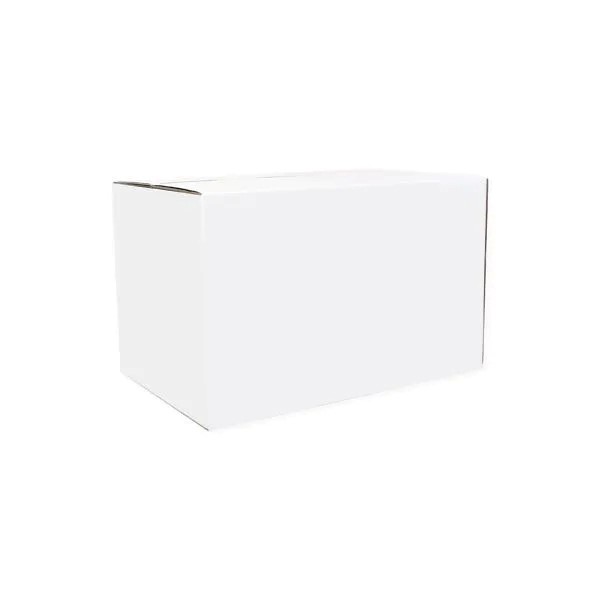Want your move to be perfect? Every move has its challenges, and the biggest is how to pack the valuables. Knowing the best box for heavy or fragile items is a must to ensure a hassle-free relocation.
Keep reading to know more!
Packing heavy or delicate items needs careful consideration. It is about preventing damage, reducing stress, and making your overall move efficient. If you understand the correlation between box size, strength, and load capacity, you can ensure that your valuables are transported safely from one location to another.
This is the reason why choosing the right moving box makes all the difference. Whether you’re relocating a home, office, or warehouse inventory, paying attention to details like box dimensions, wall thickness, and reinforcement can save you from costly replacements later.
Let’s understand this better! In this guide, we will walk you through the determinants of choosing the right box for heavy or fragile items.
Understanding which Box is for Heavy or Fragile Items
Key Principles
There are several guiding principles that explain what the ideal dimensions of the box are for heavy or fragile items.
1. What is the ideal size of the box?
The box should be small to a certain point. Overly large moving boxes with a heavy load risk collapse or sag. As a rule of thumb in moving, heavy items belong in small or medium boxes rather than large ones.
2. How can the right size of the box help?
A box that closely matches your packaged item (plus padding) is better than oversized boxes, which invite movement inside and demand more filler.
3. How does the space and wall strength matter?
Do not force the items too close together in the box. Typically, 2 inches (5 cm) of padding or empty space around the item is recommended to absorb shocks. Next, a box for heavy or fragile items should be a double-wall corrugated box with high ECT or burst strength.
Picking the Right Size Box for Heavy or Fragile Items
To choose the best size for the box, you need to measure the length, width, and height of the item as accurately as possible, and then add a padding buffer to the measurements (approximately 4-5 cm).
The result gives you the internal dimensions of the box you should aim for. After this, next comes the wall strength, which is appropriate for the item’s weight. Boxes for heavy or fragile items demand great structural integrity.
For heavier or fragile items, it is best to go for double-walled corrugated boxes as they offer great strength, quality, and durability.
Pro tip: For heavier loads, always choose a double-wall box. A good moving guideline is to limit the total packed box weight to between 35 and 45 kg, even if the box could theoretically hold more. This helps reduce the risk of accidents or weakening during the move.
What are the Recommended Boxes for Heavy or Fragile Items
While there’s no one-size-fits-all box, some common dimensions are better suited for heavier or delicate contents.
Below is a table to better understand it
| Item Type | Suggested Box Size | Why is it the Right Choice? |
| Heavy Small Items (like books and tools) | Small moving boxes (16″ x 10″ x 10″) | Keeps size manageable while allowing padding |
| Medium Fragile Items (like small electronics) | Medium moving boxes (18″ x 14″ x 12″) | Provides room for cushioning layers |
| Larger Fragile Items (like art deco and glassware) | A Large Moving Box (20x 20x 15) is ideal | This requires stronger walls and internal bracing |
| Bulky Heavy Items (Furniture Pieces) | Double-wall Corrugated box | Standard boxes may fail under too much weight |
For a wider range of boxes, please check out our inventory. We offer a custom range of boxes at affordable pricing. Packeze is here to be your moving solution. Get in touch today!
Final Thoughts
The ideal box for heavy or fragile items balances durability, cushioning, and compactness. If you use a box of the wrong size, which could be too big or too small, you will risk your belongings being compressed and breaking during transport.
Remember, investing in high-quality, double-wall or reinforced boxes helps ensure that even the most delicate or weighty belongings stay protected throughout your move. Choose the right moving box size and make your move safe, efficient, and convenient.
Pack Smarter, Move Safer with Our Moving Boxes
Protect your valuables with Packeze’s durable range of moving boxes designed for all: heavy, light, and fragile items. We guarantee strength, cushioning, and long-term reliability.
Get premium quality assurance and quality packing. Don’t risk damage, shop with us today!
FAQs
What size is best for heavy or fragile items?
A small to medium-sized box works best for heavy or fragile items. Smaller boxes reduce shifting, while double-wall or reinforced cardboard ensures protection. Always leave room for cushioning materials like bubble wrap or foam to prevent damage during transit.
Why not choose big moving boxes for heavy items?
It is generally not recommended to use large boxes for heavy items as they might collapse or become unstable due to unequal weight distribution. Smaller, sturdier boxes that can handle concentrated weight without straining the box walls or seams during lifting and stacking.
What is the cost of a medium-sized moving box pack?
We offer you a pack of 20 medium-sized moving boxes at an affordable price of $45.
How do I pack fragile items safely in a box?
Wrap each item individually with bubble wrap, fill empty spaces with padding, and use cushioning at the top and bottom. Securely seal the box with heavy-duty tape and clearly label it as “Fragile” for safe handling.




